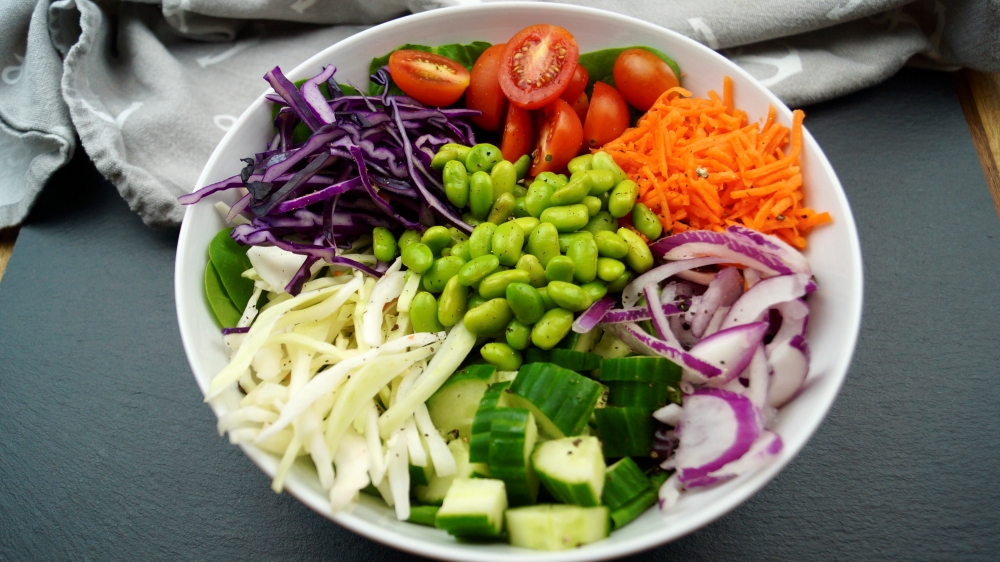Some of us need to have that morning cup of coffee in order to feel like we can function, while others love to have that post-lunch frappuccino to make the rest of the workday just that bit more bearable. When done right, coffee can actually play a part in burning fat – because it stimulates your nervous system and sends signals to the fat cells to break down fat. Apart from that, it encourages your body’s production of a fat-burning enzyme, lipase.
For those who lead an active lifestyle, perhaps you would like to know that caffeine can help boost your endurance! That means it’s a good idea to reach out for that pre-workout coffee, as it could actually help you get more out of your training sessions.
If you’re a coffee drinker and want to find out how you can cultivate healthier habits when drinking your favorite cup of joe, then read on. Today, Evolve Daily shares 6 Tips For Healthier Coffee Drinking Habits:
1) Limit your coffee consumption
10 Foods To Boost Your Metabolism!
WATCH: 10 Foods To Boost Your Metabolism!
https://www.evolve-mma.com
Posted by Evolve MMA on Friday, July 28, 2017
How much coffee do you drink? Ideally, you should not be consuming more than two cups of coffee a day. In fact, two cups is already pushing it. Most medical professionals suggest keeping your caffeine consumption to about 300mg of caffeine daily, which is eight ounces. This is an amount that your liver can handle.
If you’re someone who practically replaces your water with coffee (think: 8 cups) – then you might be consuming too much caffeine, which is unhealthy for your body. This is because it causes headaches, insomnia, and diarrhea, among other side effects. So do yourself a favor and keep it to just one cup a day!
2) Remove the sugar
This is probably going to be one of the hardest things to do, especially if you have the habit of adding sugar to your coffee or ordering your usual caramel latte. Unfortunately, sugar is an extremely harmful ingredient that wreaks havoc on your health and adds unwanted inches to your waistline! So if you’ve been trying to shed some pounds, you could be indirectly sabotaging yourself by adding those packets of sugar in your coffee.
By ditching the sugar or flavored syrups (which are basically laden with sugar as well), you will not only be cutting out unnecessary calories but also protecting your body from these harmful consequences.
3) Drink coffee after your meal
Most people probably reach out for a coffee first thing after waking up and before having breakfast. If this is what you do, then you should know that it’s better to get some food in your system prior to chugging down that cup of coffee. This is because drinking coffee on an empty stomach can cause or aggravate several health problems – such as anxiety or gastrointestinal issues.
Having coffee on an empty stomach can also cause a drop in blood sugar, which will then result in more sugar cravings. And yes, this means there’s a higher chance that you will overindulge in those sweet treats. By having food in your system, your stomach can then keep those cravings at bay by modulating this blood sugar response.
4) Opt for organic coffee
https://www.youtube.com/watch?v=E7Ia8brtCgA
As conventional coffee is sprayed with pesticides, there’s no doubt that healthier coffee comes in the form of organic choices. By making a trip to your local health food store, you will be able to find out what your organic options are – trust us, it’s not as hard to find as you think.
5) Grind your own coffee beans
How fresh do you think your coffee is? Like all other kinds of food, coffee beans also get rancid when their inner contents are exposed to moisture and oxygen. To ensure maximum freshness, it is best to grind your own coffee beans. By doing so, you will then be able to ensure that you’re reaping all the nutritional benefits that your cup of coffee has to offer – since it’s freshly ground.
6) Listen to your body

At the end of the day, the best thing you can do is to listen to what your body is telling you. As everyone reacts differently to coffee, it is important to take note of what it does to your body. For example, does drinking it in the late afternoon cause you to stay up all night and not get a good night’s sleep? If so, then it helps to make the necessary adjustments – such as drinking your coffee earlier, or perhaps having a non-caffeinated drink instead when it’s past a certain time.
Now that you know what you can do to get the most out of your coffee, are you ready to start being healthier?















